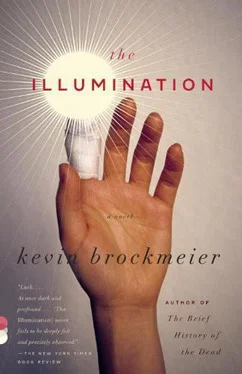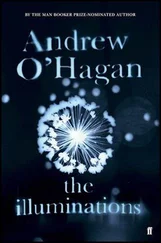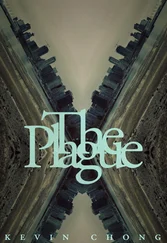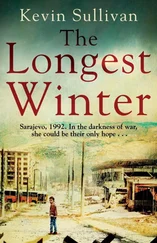Sometimes, late at night, he would find himself reminiscing about the disasters he had lived through, the tornado and the earthquake, the tsunami and the nitroglycerine bomb, and a voice in his head would insist, The Lord must be looking out for you. Sixty-four years and never a major illness. Sixty-eight years and still going strong. Seventy years and seventy-one and seventy-two and seventy-three … and he would say to himself: No . One word: No . He did not believe—and who could?—in a God so hawk-eyed and brutal, a God who bestowed a cancer here, a deformity there, for you a septic embolism and for you a compound fracture, selecting one person for grief and another for happiness like a painter experimenting with degrees of light and shadow. And which was the light, he wondered, and which the shadow? If the trials of Job could be a sign of God’s favor, then couldn’t Ryan’s own good fortune be a sign of God’s hostility? Maybe the crippled, the bruised, the diseased, the damaged—maybe the reason their wounds shone in this world was because God was lending them His attention from the next, looking on with loving compassion or a cultivated interest in suffering. Compassion. A cultivated interest in suffering. Compassion. A cultivated interest in suffering. Those were the possibilities that played across Ryan’s mind as he lay in bed watching the darkness conduct its usual late-night scintillations. He listened to the legs of an insect ticking across the floor of his bedroom. Say that God’s attention was a product of His sympathy: well, then our pain came first, and it brought His gaze, and from His gaze arose the luminosity of our suffering: y + z = a . Say, on the other hand, that God’s attention was a product of His esteem for certain forms of afflicted beauty: then our pain came first, and it brought with it the luminosity of our suffering, which summoned His gaze: y + a = z . One was the cause and the other the effect, one a and the other z , though either way, our pain came first, our pain was inescapable, our pain was always y . What frightened Ryan—horrified him—was not the possibility that God did not love us but that He did love us and His love was merely decorative. Aesthetic rather than unconditional. That He loved us because we suffered, and our suffering was pleasing to His eyes. The Illumination had overturned all the old categories of thought. For a while Ryan had believed, along with the crystal healers and the televangelists, that the light that had come to their injuries would herald a new age of reconciliation and earthly brotherhood. You would think that taking the pain of every human being and making it so starkly visible—every drunken headache and frayed cuticle, every punctured lung and bowel pocked with cancer—would inspire waves of fellow feeling all over the world, or at least ripples of pity, and for a while maybe it had, but now there were children who had come of age knowing nothing else, running to their mothers to have a Band-Aid put on their flickers, asking, Why is the sky blue? and, Why does the sun hurt? , and still they grew into their destructiveness, and still they learned whose hurt to assuage and whose to disregard, and still there were soldiers enough for all the armies of the world. And every war left behind the shrapnel scars and shattered limbs of a hundred thousand ruined bodies. And every earthquake and every hurricane produced a holocaust of light. And when his sister died she had looked at him with the panic of someone who had no idea what was coming next. And when his friends in Burkina Faso died their wounds seemed to flood the sky. And the gun shops and munitions factories were as plentiful as blades of grass. And the emergency rooms were as full as they had ever been. And there were towns in the great open middle of the country where the cemeteries outnumbered the churches. And in the hockey stands and the boxing arenas, a cheer went up with every split lip, every burst capillary. And in the video games the schoolkids played, the aliens erupted in geysers of blood and golden tinsel. And in the tent cities and domestic violence shelters, the poor and the beaten huddled over their sores and bruises, cradling them like fussy children. And Ryan felt that he had spent his life in a darkened room, groping for meaning or at least consolation. And so, it seemed to him, had everyone else. And their bodies were aging and one day they would fail altogether. And every heart would be soaked in brightness. And every brain would burn out like an ember. And there was God, high on His throne, attending to the whole terrible procession of sorrows and traumas, corrosions and illnesses, with a cool, cerebral dispassion. He took His notes. He never uttered a syllable. He had the whole world, all the little children, you and me, brother, in His hands. And it seemed to Ryan that He viewed their bodies as a doctor would—so many sorry aging structures of blood and tissue, each displaying its own particular debility. Their wounds were majestic to Him, their tumors and lacerations. And perhaps it had always been that way. Perhaps the light He had brought to their injuries, or allowed the world to bring, was simply a new kind of ornamentation. The jewelry with which He decorated His lovers. The oil with which He anointed His sons. The Earth was crammed with Heaven, and every common bruise afire with God, but only he who saw took off his shoes . And if that was the case, Ryan thought, if it was our suffering that made us beautiful to God, and if that was why He allowed it to continue, then how dare He, how dare He, and why, why, why, why, why? He loved us, or so He said, but what did His love mean? What was it good for? It didn’t change anything, it didn’t improve anything, it only lingered in the distance, fluttering like a bird around the margins of their wretchedness. It was a sad little robin of a word, His “love.” It fled at the first sign of cold weather. Its bones were hollow and filled with air. Anyone could see how feeble it was, how insubstantial. How wrong. And here was the question that kept Ryan awake at night: Was it possible for God to sin? Or were God and sin the opposite poles of a binary system? Was sin whatever God was not—the cold to God’s warmth, the darkness to God’s light? Or was it stationary, absolute, and was God as capable of venturing into it as anyone else? Because it seemed to Ryan that if God could sin, and if their suffering was as needless as it appeared, and if He had permitted or even abetted it, then His love had soured into hatred, and He should take to His knees and repent. Never mind the foundations of the earth. Never mind the morning stars singing together. Never mind the sea shut up with doors. He had formed His children, endowed them with the breath of life, and set them free in a world of poison and fire. Of endless diseases and natural disasters. Floods and landslides. Volcanic eruptions. A world of spinal meningitis. Of cerebral palsy. Of neurochemical imbalances that made the weakest among people hate having to exist. Of genetic disorders that blanketed their skin in ulcers. Could He see them in their pain? Was He awake at all behind the lit windows of Heaven? For this was the hope that Ryan found himself nursing—that God had merely gone to sleep for a while and was not paying attention, that the glass of Heaven was dark, and the curtains were drawn, and the suffering of humankind was like the sunlight that gradually suffused the sky in the morning. And maybe, Ryan thought, that was all there was to it. Maybe the hour was still too early. Maybe they hadn’t yet suffered enough to rouse Him from His bed. A little more pain, a little more light, a few more blows and afflictions, and God would stretch His limbs and waken to the grand celestial daybreak. And the Earth would experience its restoration. And everything would be changed. The older Ryan became, the more the notion preoccupied him. He lay beneath his sheets watching the dim plane of the ceiling. Inside it he could see the same hallucination he had seen ever since he was a child forcing his eyes to make sense of the darkness, a thousand lambent spots that leaped and circled around one another like the static on an ancient television. And he knew that if he stared at them long enough they would come together as they always had, in a single overlapping field of Catherine wheels and carousels.
Читать дальше












